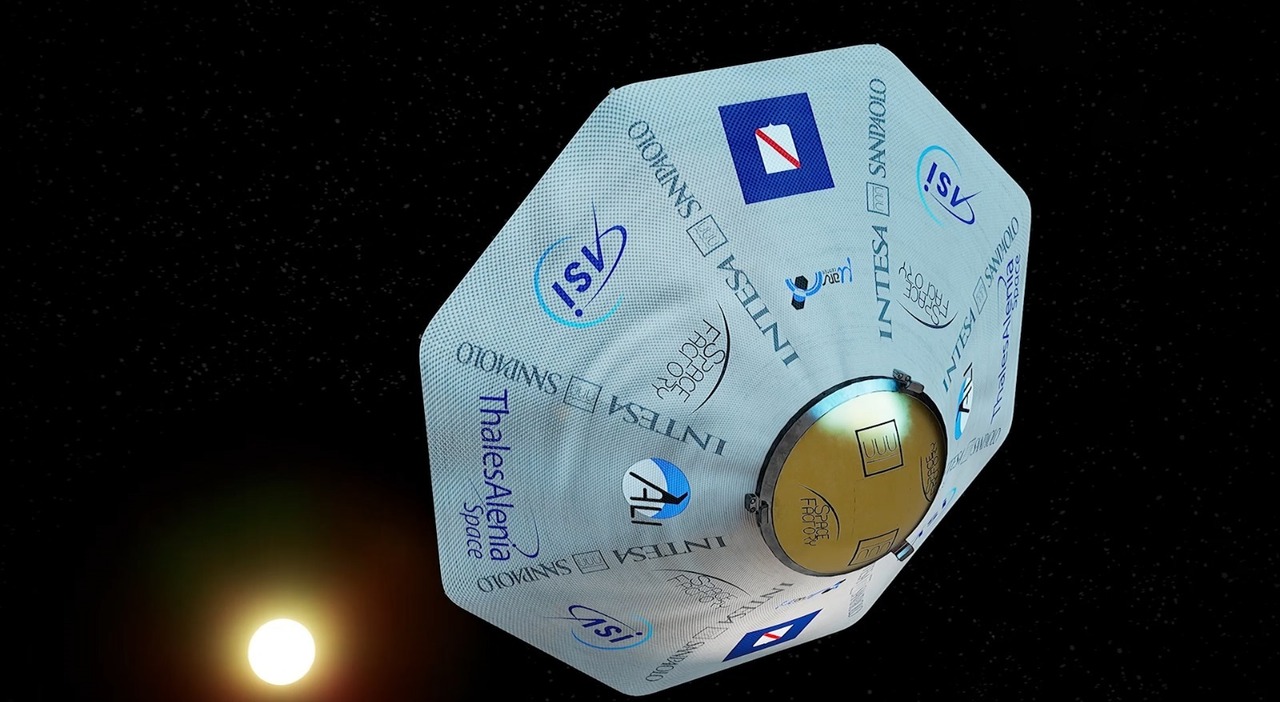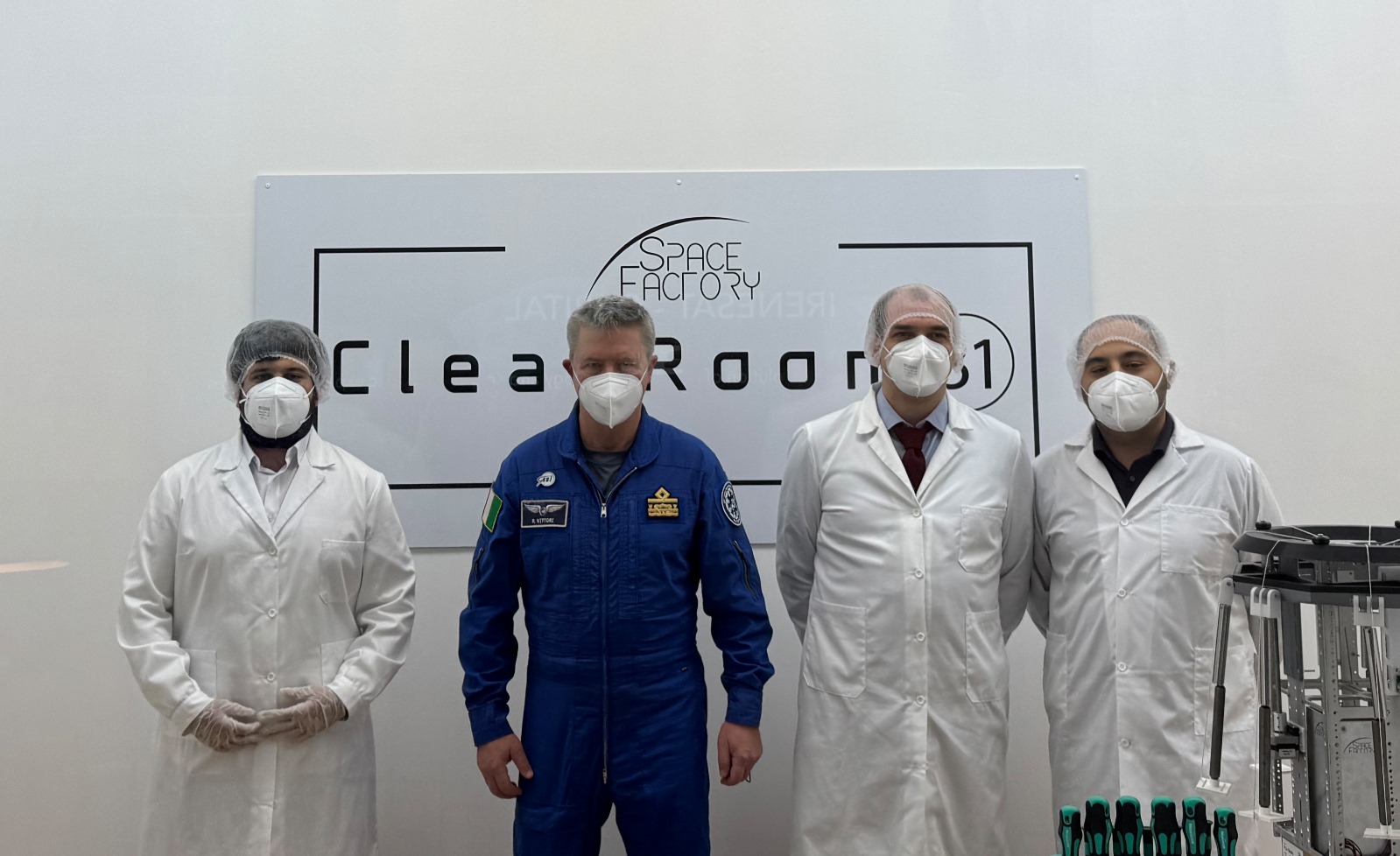Service Description
The company’s mission focuses on opening new frontiers in space research, providing scientists and researchers worldwide the opportunity to leverage the unique conditions of microgravity to conduct innovative experiments and deepen the understanding of scientific phenomena.
In post ISS context MiniLab 2.0 will be compatible to continue experiments on board future commercial orbital stations, while on board IREOS satellite MiniLab 3.0 will allow autonomous experiments in LEO.
Objectives and Mission
The company has developed three versions of its MiniLab technology. MiniLab 1.0 (TRL 9) is a 2U CubeSat-based modular laboratory designed for autonomous scientific experiments in space. It has been successfully deployed in four missions aboard the ISS between 2021 and 2024.
MiniLab 2.0 (TRL 5) introduces real-time experiment monitoring and data acquisition, enabling direct in-orbit analysis and remote adjustments, optimizing drug development and experimental workflows.
MiniLab 3.0 (TRL 4) is designed for integration. ALI aims to expand its service offerings by developing more sophisticated versions of the MiniLab, improving automation and remote control capabilities.
The next evolution of the MiniLab, named MiniLab 2.0 (May 2026) will offer advanced functionalities for remote control and management of experiments by scientists at the USOC Center of the Marscenter. This will enable the conduction of experiments both aboard orbiting stations and on spacecraft such as Virgin Galactic’s SpaceShip and suborbital rockets. Key features of the MiniLab 2.0 include:
- Modular architecture for a wide range of applications.
- Multiple cells to conduct several experiments simultaneously.
- Dual thermal control allowing the regulation of experiment temperatures.
- Real-time monitoring of key experiment parameters with the ability to modify these parameters, enabling protocol adjustments from the ground.
Significant Achievements
The project timeline is set with Minilab 1.0 ready immediately, Minilab 2.0 planned for May 2026, and MiniLab 3.0 scheduled for orbit deployment by Q4 2026. In 2024, prototype testing and validation were successfully completed, confirming the system’s reliability and space-readiness. The focus shifted in 2025 to integrating the prototype with a commercial microsatellite, ensuring compatibility and operational functionality.
The culmination is the 2026 launch and in-orbit demonstration, validating the system’s performance in space. Feasibility remains promising, contingent on launch availability, with ongoing plans to enhance automation and payload capacity. Risks include potential delays from payload integration, regulatory approval processes, and limited ISS accommodation slots.
These challenges demand careful planning to mitigate technical, logistical, and scheduling issues. Overall, the project progresses steadily toward operational deployment and future technological advancements.
MiniLab in the Media
Space Factory Srl
Il 𝗧𝗚 𝗟𝗲𝗼𝗻𝗮𝗿𝗱𝗼o ha dedicato un servizio speciale alla nuova 𝗖𝗹𝗲𝗮𝗻 𝗥𝗼𝗼𝗺 𝟯𝟭, inaugurata presso la sede di Space Factory a Napoli.
Nella struttura saranno integrati i satelliti di nuova generazione,…
Read More
www.facebook.com
Space Factory, a Napoli la camera pulita “Clean Room 31”
È stata inaugurata la camera pulita “Clean Room 31” realizzata nella sede del Gruppo Space Factory a Napoli in via Gianturco 31. Nella struttura saranno integrati i satelliti di…
Read More
www.ilmattino.it
clean-room-31-a-napoli-la-prima-camera-pulita-d-italia-per-microsatelliti-e-MiniLaboratori-per-esperimenti-in-space-d0dee9d4-0f26-4607-a0ac-6e73ba0fexlk.shtml
Read More
napoli.corriere.it
Aerospazio, in Campania una clean room per microsatelliti e minilaboratori - Europa Campania
Il sostegno della Regione Campania, attraverso le risorse europee, al settore Aerospaziale ha consentito lo…
Read More
europa.regione.campania.it
Space Factory inaugura Clean Room 31: un hub per lo sviluppo dei microsatelliti e dei minilaboratori - Ildenaro.it
Martedì 12 alle ore 14,30, è prevista l’inaugurazione della camera pulita “Clean Room 31” realizzata nella sede del Gruppo Space Factory a Napoli in Via E. Gianturco 31. Nella struttura saranno integrati i satelliti di nuova generazione, IRENESAT-ORBITAL e di minilaboratori intelligenti, MiniLabs, per effettuare esperimenti biopharma in condizioni di microgravità. Partecipano tra gli altri: […]
Read More
www.ildenaro.it
A Napoli la “Clean Room 31” per i minisatelliti - SpacEconomy 360
La struttura, realizzata nella sede del gruppo Space Factory, verrà utilizzata per integrare i minilaboratori negli esperimenti biopharma in assenza di gravità. Bizzarri, Comint: “Risorsa di valore inestimabile per il progresso della scienza spaziale, si apre la strada a esperimenti sempre più compl
Read More
www.spaceconomy360.it
ALI - Aerospace Laboratory for Innovative components S.p.a
Oggi abbiamo ricevuta la visita dell’ On.le Roberto Speranza, membro della VII Commissione del Parlamento (Cultura, Scienza e Istruzione), gia’ Ministro della Salute.
Presenti anche rappresentanti…
Read More
www.facebook.com
ALI - Aerospace Laboratory for Innovative components S.p.a
Siamo orgogliosi che nell’Annuario 2024 della Regione Campania il Gruppo Space Factory è stato inserito tra le eccellenze nel settore spaziale per le sue tecnologie e prodotti innovativi e…
Read More
www.facebook.com
8 NEWS 15 GENNAIO 2025 | 8 NEWS 15 GENNAIO 2025 | By Canale 8 | Facebook
8 NEWS 15 GENNAIO 2025
Read More
www.facebook.com
ALI - Aerospace Laboratory for Innovative components S.p.a
𝗨𝗻’𝗶𝗻𝘁𝗲𝗿𝗲𝘀𝘀𝗮𝗻𝘁𝗲 𝗶𝗻𝘁𝗲𝗿𝘃𝗶𝘀𝘁𝗮 𝗱𝗲𝗹 𝗣𝗿𝗼𝗳. 𝗠𝗮𝗿𝗶𝗮𝗻𝗼 𝗕𝗶𝘇𝘇𝗮𝗿𝗿𝗶, 𝑫𝒊𝒓𝒆𝒕𝒕𝒐𝒓𝒆 𝒅𝒆𝒍 𝑳𝒂𝒃𝒐𝒓𝒂𝒕𝒐𝒓𝒊𝒐 𝑵𝒂𝒛𝒊𝒐𝒏𝒂𝒍𝒆 𝒅𝒊 𝑩𝒊𝒐𝒎𝒆𝒅𝒊𝒄𝒊𝒏𝒂 𝑺𝒑𝒂𝒛𝒊𝒂𝒍𝒆 𝒆 𝑹𝒆𝒔𝒑𝒐𝒏𝒔𝒂𝒃𝒊𝒍𝒆 𝒅𝒆𝒍 𝑻𝒂𝒗𝒐𝒍𝒐 𝑻𝒆𝒄𝒏𝒊𝒄𝒐 𝒅𝒆𝒍 𝑪𝑶𝑴𝑰𝑵𝑻,𝗽𝘂𝗯𝗯𝗹𝗶𝗰𝗮𝘁𝗼 𝘀𝘂 𝗣𝗮𝗻𝗼𝗿𝗮𝗺𝗮 𝘀𝘂𝗹𝗹𝗮…
Read More
www.facebook.com
Castellammare di Stabia protagonista della space economy: un evento tra scienza, innovazione e cultura - Ildenaro.it
Mercoledì 16 aprile alle 17,30 la Sala Congressi della Banca Stabiese, in Corso Vittorio Emanuele 113 a Castellammare di Stabia, ospiterà l’evento “#Stabia meets Space Economy”, un incontro che unisce divulgazione scientifica, innovazione e partecipazione territoriale. L’iniziativa è pensata per raccontare il presente e il futuro dello spazio in chiave accessibile, attraverso le voci di […]
Read More
www.ildenaro.it
Stabia meets Space Economy: le stelle si raccontano con De Laurentis, Barbarossa, Carrino ed Evangelista - Sud Notizie Napoli - Campania - Basilicata - Molise
Il 16 aprile 2025 la Sala Congressi della Banca Stabiese ospita ”#Stabia meets Space Economy”, evento dedicato all’innovazione e all’esplorazione spaziale con la partecipazione di figure di rilievo come Mariafelicia De Laurentis, Mattia Barbarossa, Luigi Carrino e Antonio Evangelista.
Read More
www.sudnotizie.com
Castellammare, appuntamento con lo Stabia meets Space Economy
Appuntamento per mercoledì alle 17:30 presso la Sala Congressi della Banca Stabiese
Read More
www.stabianews.it
A Castellammare “Stabia Meets Space Economy”: un viaggio tra le stelle con esperti del settore
Castellammare di Stabia – Mercoledì 16 aprile, alle 17:30, la Sala Congressi della Banca Stabiese (Corso Vittorio Emanuele 113) ospiterà “#Stabia Meets Space
Read More
www.cronachedellacampania.it
Castellammare, seminario su aerospazio e opportunità: esperti a confronto - Promosso dal Rotary club, appuntamento mercoledì alle 17,30
A Castellammare un seminario sull’importanza del settore aerospaziale per l’economia in Campania e un approfondimento sulle potenzialità per i giovani. È promosso dal Rotary club di Castellammare e si svolgerà mercoledì 16 aprile a partire dalle 17,30. L’appuntamento è nella sala congressi della Banca Stabiese. Con il titolo “E quindi uscimmo a riveder le stelle”, apre i lavori per i saluti istituzionali la presidente del club Rotary di Castellammare Carmen Matarazzo. Poi la parola passa agli esperti con il primo intervento dell’astrofisica Mariafelicia De Laurentis, responsabile del Project Scientist dellEvent Horizon Telescope (EHT). A seguire il professore Luigi Carrino, presidente del Distretto Aerospaziale della Campania e presidente del Rotary Club “Ulisse 2101 Colfo di Napoli”. Da programma il terzo intervento è affidato a Mattia Barbarossa, Presidente “Sidereus Space Dynamics”. Conclude l’incontro Antonio Evangelista, Responsabile Ingegneria dei Sistemi, “Gruppo Space Factory. Modera i lavori Noemi Taccarelli, Presidente Commissione, Immagine Pubblica Distretto Rotary.
Read More
www.ilcorrierino.it















